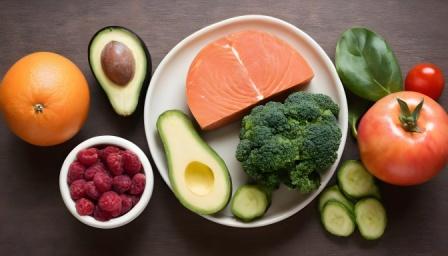Imagine your blood vessels as a bustling highway system, and endothelial cells as the traffic controllers. When stress hits, it's rush hour, and things get congested. But what if you added a greasy burger to the mix? That's the scenario researchers explored, investigating how fat consumption and stress tango with your vascular health.
Stress Takes the Wheel:
As expected, stress revved up the participants' blood flow (like rush hour) and threw their cardiovascular system off balance. This confirmed past findings, suggesting stress activates the sympathetic nervous system, slows down the parasympathetic one, and elevates stress hormones like cortisol, all contributing to temporary traffic jams in our blood vessels.
Fat Throws a Wrench in Recovery:
Here's the groundbreaking twist: a high-fat meal before stress significantly slowed down the recovery of smooth blood flow, taking 90 minutes instead of the usual 30! This suggests fat throws a wrench into the system, prolonging the stress-induced traffic jam.
Fat's Confusing Passenger:
Interestingly, fat didn't directly affect blood flow during stress itself, just its recovery. This adds another layer of complexity to the fat-stress equation. It's like a passenger who doesn't cause the initial chaos but makes it harder to get things moving again.
Exploring the Backroads:
The researchers also examined blood flow at rest and during stress after the meals. Unlike some past studies, they didn't find a clear-cut impact of fat. This highlights the importance of considering the timing of measurements, as fat's effect might unfold over longer stretches.
Delving into the Engine Room:
To understand why fat delays recovery, the researchers peeked under the hood. They found increased levels of triglycerides and C-reactive protein after a fatty meal, which are like villains known to damage blood vessels and reduce nitric oxide, the molecule that keeps traffic flowing smoothly.
The Road Ahead:
This study paves the way for exciting future research. We need to delve deeper into how fat influences blood flow during stress, not just after. Additionally, exploring how fat affects cardiovascular health after stress could paint a more complete picture.
The Takeaway:
Fat and stress are like a tricky dance duo. While fat doesn't directly worsen the initial stress response, it seems to make it harder for your blood vessels to bounce back. This knowledge empowers us to make informed choices about what we eat before facing stressful situations. Opting for healthier options might be like taking a scenic detour, allowing your vascular system to navigate stress with greater ease.
Remember, this is just the beginning of the journey. As we continue to unravel the intricate dance between fat, stress, and our blood vessels, we inch closer to promoting optimal cardiovascular health in young adults. So, the next time you're feeling stressed, consider a healthy snack instead of that greasy burger. Your blood vessels might just thank you for it!






